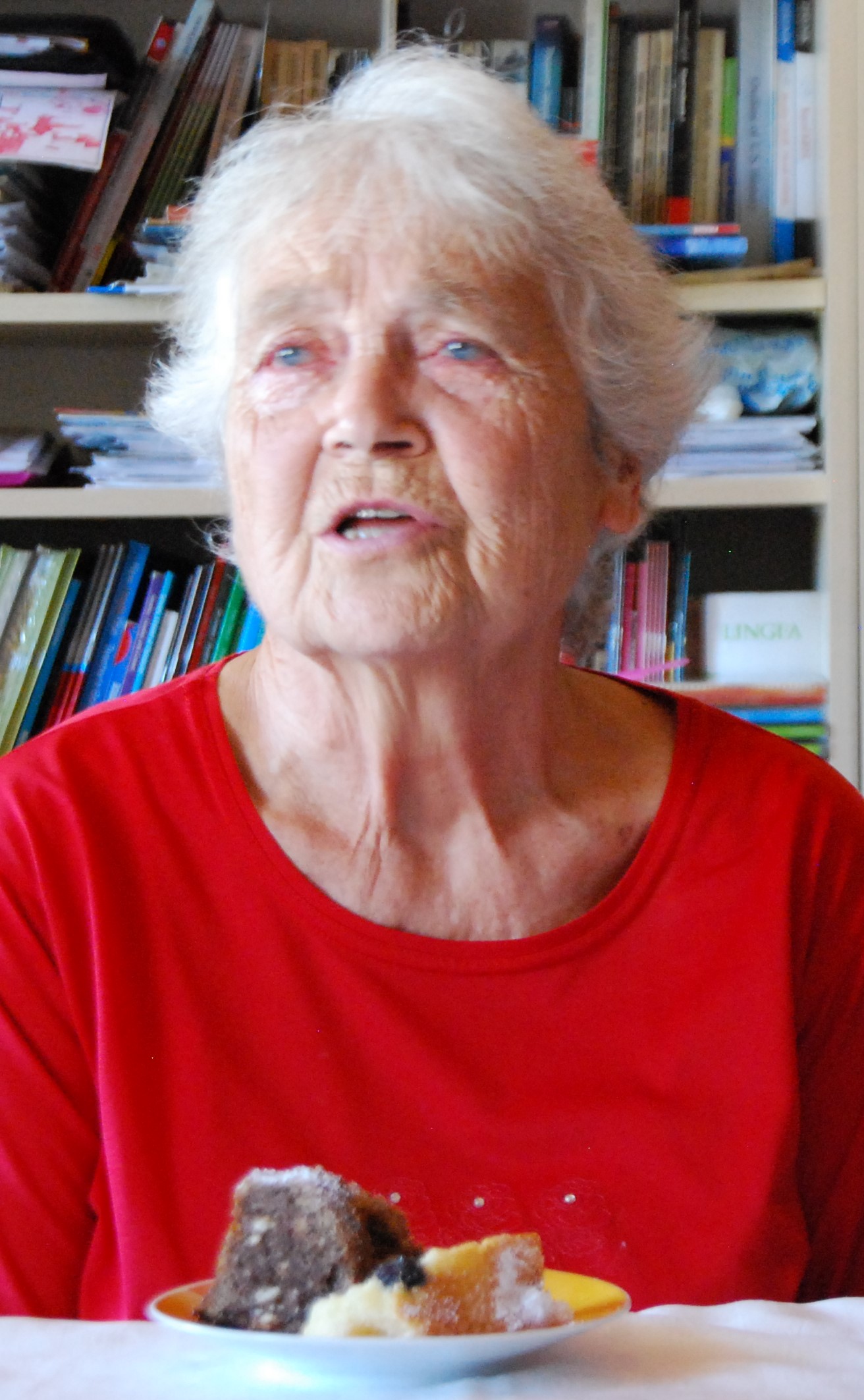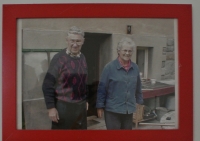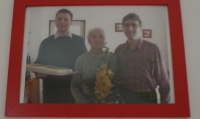"I used to love going to Vladislav Street to work. Because I was a water girl from Lahovice, the rivers Berounka, Vltava, we knew how to swim from a young age, we liked to go swimming. But the swimsuits, that was a problem, wasn't it. The clothes tickets, my mother gave us few points from the tickets for stockings or sweatpants, not for swimsuits. She said, 'What's the swimsuit for, tell me?' So we used to go swimming in terrible rags, I have to say that. I used to take the tram to work, the 5 through Újezd to Národní Street. There was a shop on Újezd, not clothes, but underwear. Suddenly there were swimsuits behind the window. A girl's swimsuit. Black with orange flowers, two-piece. I always looked at the swimsuit from the tram, I wanted it so badly, I started talking about it at home, I wanted it so much. I told the family council, it was springtime, that I wanted that swimsuit so badly, because what I used to go swimming in, it was impossible for me to walk around in it anymore. And my family thought I deserved the swimsuit. My mom gave me a clothes ticket, I said I'd pay for the swimsuit, and I left work, and I couldn't wait for the work day to end. I went to buy this beautiful swimsuit. I went to the bathroom to put on the swimsuit, to show off in the swimsuit. And when I came into the kitchen in the swimsuit, the clothes ticket had, it was like this, it was like a leaflet, like a children's picture book, it had about three pages. And my mum was in the kitchen holding the ticket, and I walked in triumphantly in the swimsuit all excited, and she was waving the ticket around and saying, 'You're almost grown up now, and you're so stupid, you couldn't have asked how many points are needed for the swimsuit? Look, they cut out a piece of the ticket. You're going to need a coat for the winter, are you going to wear a swimsuit?' Well, I lost all happiness, it fell off me, I retreated back into the bathroom, I went to change, I put the swimsuit away and I was so ashamed, so ashamed."



